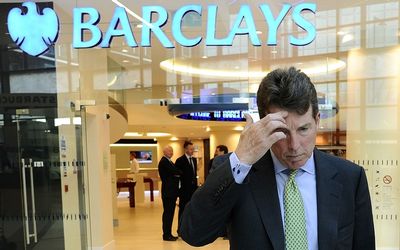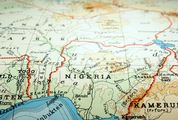Bob Diamond likely to meet hurdles in a possible bid for more South African assets
by Memory Mataranyika and Carin Smith,
2016-03-04 16:11:57.0
Bob Diamond likely to meet hurdles in a possible bid for more South African assets
HARARE — Shrewd African banking industry investor Bob Diamond will not have it easy in markets Barclays plc is exiting as regulatory and capital issues are still weighing down international investors, analysts said on Friday.
Mr Diamond, a former Barclays executive, already has a significant presence in sub-Saharan Africa through the BancABC unit. He has, however, been criticised for being too ambitious in a market with uncertainties, although he has brushed this aside. Analysts have highlighted that his chances would be enhanced if Barclays decided to sell off its assets in chunks.
Mr Diamond’s Atlas Mara group, established to buy African financial services assets, has been mentioned as one of the frontrunners to acquire Barclays Africa Group (formerly Absa) assets. The Financial Times reported on Friday that Mr Diamond was already talking to some investors to sink money into his bid for the African assets.
"It is a strategy that is up to the shareholders who have, I must say, expressed their appetite for growth in Africa’s banking scene," said a regional banking executive.
Zimbabwean economist John Robertson said on Friday that Mr Diamond will likely meet hurdles in his bid in some markets such as Zimbabwe and South Africa. Allies of Mr Diamond interviewed by the Financial Times said he was interested in Barclays Africa assets outside the continent’s second-largest economy.
"He is going to face the fact that the Zimbabwe government wants a controlling interest in all businesses and it will not be easy. Any foreign investor who comes (along) will face regulatory and other challenges in most African markets," said Robertson.
Officials cited Zimbabwe and Egypt’s difficult operating and investment environments as the reason for Barclays Africa’s decision to leave the two countries out of the deal that saw Absa merge with Barclays PLC’s operations in the rest of Africa.
A South African-based investment analyst said it would be "difficult for the international banks to look at Zim and more of the rest of Africa assets that Barclays is moving out of".
"Mr Diamond already has a presence in Africa although he does not have as large a footprint as Barclays, so he may want to capitalise on the exit of the British bank," added the analyst, who did not want to be named.
"Regionally, Absa is a bit more for them if you look at the other markets like Tanzania, Zambia and Botswana. If they are to move on Barclays’s rest of Africa markets, it will pay off if they can pick and choose some assets and leave out other assets.
"But this will depend on whether Barclays’s strategy is in selling the assets, like if they want to sell them in a block or in chunks. If Barclays plc chooses to sell in one block, it will be very difficult for Bob Diamond," he said.
China’s ICBC, which has a huge investment in Standard Bank, French bank Société Générale and other Africa-focused investors are being touted as potential suitors for Barclays Africa assets.
The assets Barclays owns in Africa are said to be valued at about $5bn, while Atlas Mara’s London-listed shares have a value of about $318m.
Barclays Group on Tuesday made firm its intention to sell its 62.3% stake in Barclays Africa. The global banker listed as part of its rationale for the sell-down that, despite a strong returns profile locally, Absa’s contribution is significantly diluted at Barclays Group level.
The bank also carries 100% responsibility with only 62.3% benefits, it said at its results presentation. The sell-down would mean a cost reduction of about £2bn and a loss of 40,000 jobs from Barclays Group.
Barclays said it intends selling its African business over the coming two to three years, but this is subject to shareholder and regulatory approval. The announcement came as the UK bank announced net losses more than doubled last year. In June last year, Mr Diamond shared his view that "Africa is open for business" at the World Economic Forum on Africa held in Cape Town.
He said Nigeria’s free and democratic elections were key to switching investor interest back to Africa.
"We are very positive about Africa. Of course nothing goes in a straight line on the continent, but we see investors coming back now," Mr Diamond said at the time.
"Our lesson in Africa so far has been that yes, there are impediments, but there is a big willingness to engage when there is a good opportunity. We want to be the leading financial institution in sub-Saharan Africa, with a key presence in all four major trading blocks on the continent."
Fin24

HEADACHE: Bob Diamond. Picture: REUTERS/DYLAN MARTINEZ
HARARE — Shrewd African banking industry investor Bob Diamond will not have it easy in markets Barclays plc is exiting as regulatory and capital issues are still weighing down international investors, analysts said on Friday.
Mr Diamond, a former Barclays executive, already has a significant presence in sub-Saharan Africa through the BancABC unit. He has, however, been criticised for being too ambitious in a market with uncertainties, although he has brushed this aside. Analysts have highlighted that his chances would be enhanced if Barclays decided to sell off its assets in chunks.
Mr Diamond’s Atlas Mara group, established to buy African financial services assets, has been mentioned as one of the frontrunners to acquire Barclays Africa Group (formerly Absa) assets. The Financial Times reported on Friday that Mr Diamond was already talking to some investors to sink money into his bid for the African assets.
"It is a strategy that is up to the shareholders who have, I must say, expressed their appetite for growth in Africa’s banking scene," said a regional banking executive.
Zimbabwean economist John Robertson said on Friday that Mr Diamond will likely meet hurdles in his bid in some markets such as Zimbabwe and South Africa. Allies of Mr Diamond interviewed by the Financial Times said he was interested in Barclays Africa assets outside the continent’s second-largest economy.
"He is going to face the fact that the Zimbabwe government wants a controlling interest in all businesses and it will not be easy. Any foreign investor who comes (along) will face regulatory and other challenges in most African markets," said Robertson.
Officials cited Zimbabwe and Egypt’s difficult operating and investment environments as the reason for Barclays Africa’s decision to leave the two countries out of the deal that saw Absa merge with Barclays PLC’s operations in the rest of Africa.
A South African-based investment analyst said it would be "difficult for the international banks to look at Zim and more of the rest of Africa assets that Barclays is moving out of".
"Mr Diamond already has a presence in Africa although he does not have as large a footprint as Barclays, so he may want to capitalise on the exit of the British bank," added the analyst, who did not want to be named.
"Regionally, Absa is a bit more for them if you look at the other markets like Tanzania, Zambia and Botswana. If they are to move on Barclays’s rest of Africa markets, it will pay off if they can pick and choose some assets and leave out other assets.
"But this will depend on whether Barclays’s strategy is in selling the assets, like if they want to sell them in a block or in chunks. If Barclays plc chooses to sell in one block, it will be very difficult for Bob Diamond," he said.
China’s ICBC, which has a huge investment in Standard Bank, French bank Société Générale and other Africa-focused investors are being touted as potential suitors for Barclays Africa assets.
The assets Barclays owns in Africa are said to be valued at about $5bn, while Atlas Mara’s London-listed shares have a value of about $318m.
Barclays Group on Tuesday made firm its intention to sell its 62.3% stake in Barclays Africa. The global banker listed as part of its rationale for the sell-down that, despite a strong returns profile locally, Absa’s contribution is significantly diluted at Barclays Group level.
The bank also carries 100% responsibility with only 62.3% benefits, it said at its results presentation. The sell-down would mean a cost reduction of about £2bn and a loss of 40,000 jobs from Barclays Group.
Barclays said it intends selling its African business over the coming two to three years, but this is subject to shareholder and regulatory approval. The announcement came as the UK bank announced net losses more than doubled last year. In June last year, Mr Diamond shared his view that "Africa is open for business" at the World Economic Forum on Africa held in Cape Town.
He said Nigeria’s free and democratic elections were key to switching investor interest back to Africa.
"We are very positive about Africa. Of course nothing goes in a straight line on the continent, but we see investors coming back now," Mr Diamond said at the time.
"Our lesson in Africa so far has been that yes, there are impediments, but there is a big willingness to engage when there is a good opportunity. We want to be the leading financial institution in sub-Saharan Africa, with a key presence in all four major trading blocks on the continent."
Fin24


















Change: -1.54%
Change: -1.49%
Change: -2.02%
Change: -0.73%
Change: -4.01%
Data supplied by Profile Data
Change: 0.12%
Change: -0.10%
Change: -1.54%
Change: 0.00%
Change: -0.25%
Data supplied by Profile Data
Change: 0.99%
Change: 0.13%
Change: 0.54%
Change: 0.74%
Change: -0.12%
Data supplied by Profile Data
Change: -2.11%
Change: -3.72%
Change: -4.04%
Change: -3.65%
Change: -2.00%
Data supplied by Profile Data